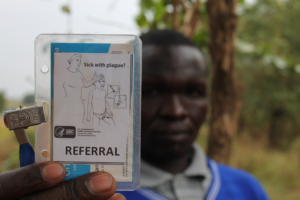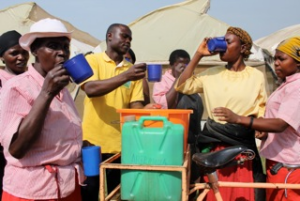Brendan Borrell
- 2013

Fellowship Title:
- Traditional Herbal Medicines and the Fight Against AIDS, Malaria and Tuberculosis
Fellowship Year:
- 2013

Centuries after the Black Death, Plague Still Kills
ARUA, Uganda — Isaac Baniyo stumbled through his final exam in English last November as a pounding headache and chest pain made it difficult to focus. The teenager’s parents sent him on foot to a drug shop not far from their grass-roofed hut in the village of Wali, but the tablets he brought back in a folded sheet of paper failed to clear his symptoms. His fever soared, his breathing became labored and he hacked up bloody mucus. The dead rats in the village should have been a warning sign: Baniyo had caught pneumonic plague, the contagious form of the disease responsible for history’s most notorious epidemics, including Black Death of the 14th century. Far from being consigned to the Middle Ages, between 1000 and 2000 plague cases are reported to the World Health Organization each year. Plague has spread, via humanity and its rats, to the burrows of prairie dogs in the American Southwest and up the Nile River to remote corners of Africa. The world’s deadliest plague zone is centered here on the

The WHO vs. the Tea Doctor
ENTEBBE, Uganda—It’s a little after 9 a.m. on the Wagagai Flower Farm, and Robert Watsusi pedals a bicycle laden with two 3-gallon jugs of a hot, bitter black tea. As he rounds a corner, workers emerge from football field–size growing houses to imbibe their weekly dose of the elixir they say keeps them free from malaria.
